13 Boomer Jobs That No Longer Exist
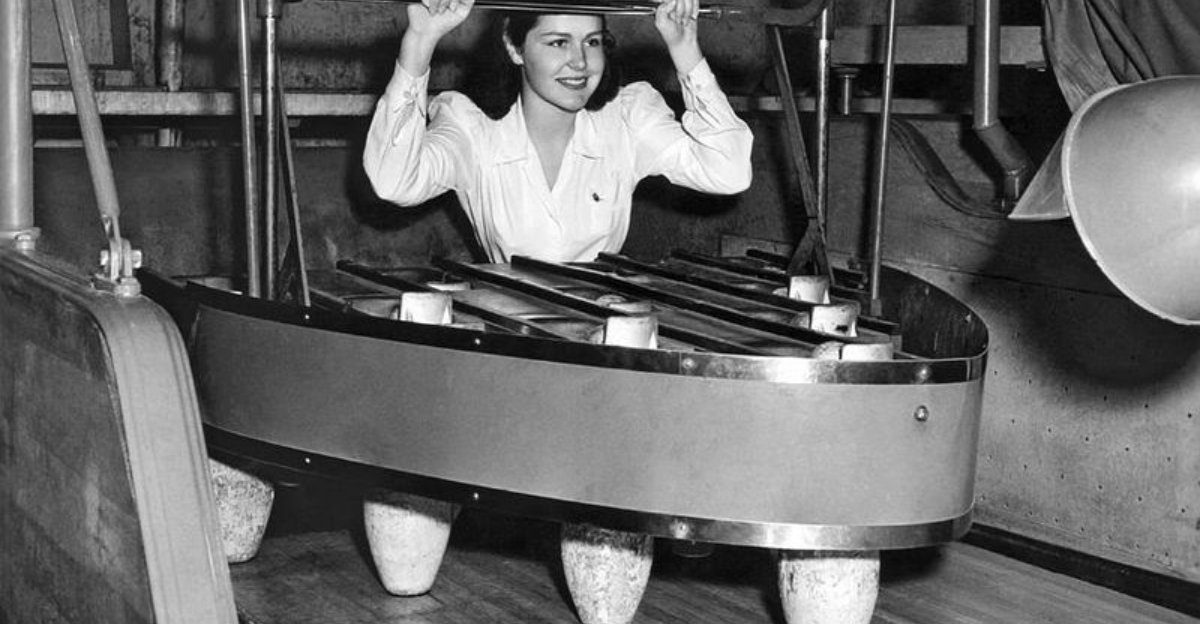
Remember the days when a “telephone switchboard operator” was a thing? I once asked my grandma what that was, and her eyes twinkled with nostalgia. “Oh, those were the days,” she said, describing a world where jobs like that were the norm.
Well, grab your time machine, because we’re about to take a quirky journey through 13 jobs that used to be, but are no more!
1. Telephone Switchboard Operator
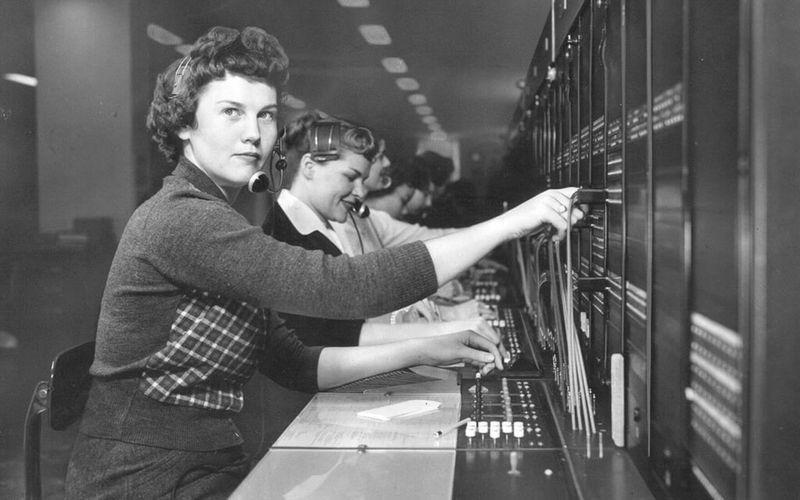
With a flick of the wrist and a tangle of cords, telephone switchboard operators were the original human routers. They connected calls faster than you can say ‘operator, please.’ This role was crucial before the digital age automated telephone systems.
Yet, as innovations and automated systems rose, the need for manual connection faded. Now, they linger as trivia tidbits or in fond films.
To folks like my grandma, it was a lively role, buzzing with conversations and the occasional gossip session.
2. Milkman
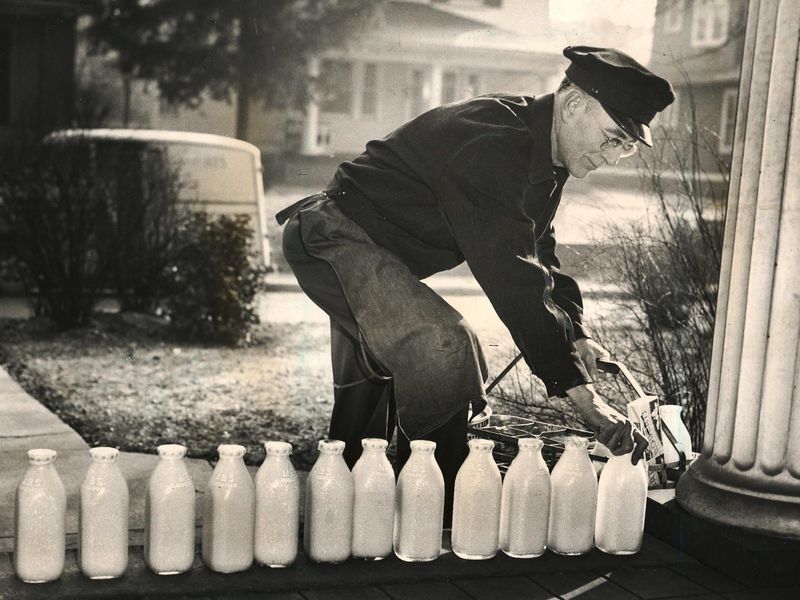
Every morning, like clockwork, the milkman delivered fresh dairy to your door, ensuring your cereal wasn’t sad and dry. With jingling bottles and a friendly wave, he was a staple of suburban life.
As supermarkets and refrigeration technology advanced, the milkman’s daily rounds became less economical.
Today, sightings are as rare as a unicorn in a city park. But for those who remember, the clink of glass bottles on a porch is a sound of pure nostalgia, echoing simpler times.
3. Video Rental Clerk
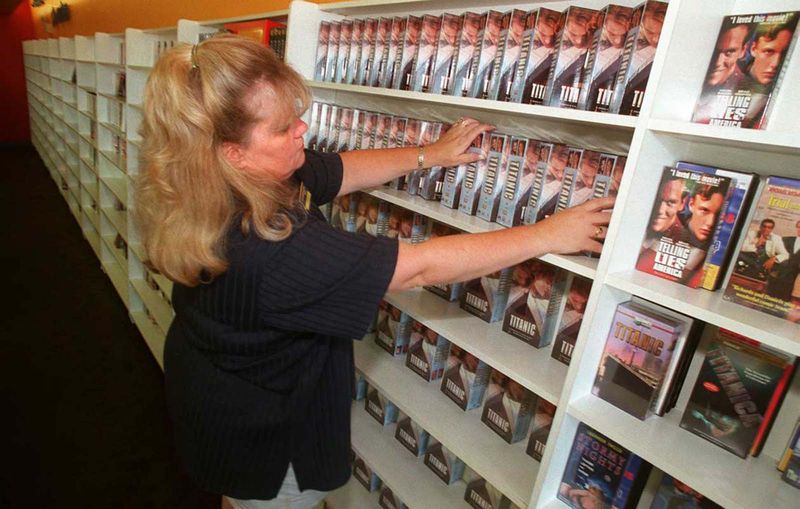
Browsing aisles for the perfect Friday night flick was a sweet agony. Video rental clerks guided us through cinematic choices like wise sages of film.
Streaming services ended their role, turning video stores into remnants of a bygone time. It’s a digital world now, and they didn’t get the memo.
To some, those aisles held hidden gems and guilty pleasures awaiting discovery.
4. Pinsetter
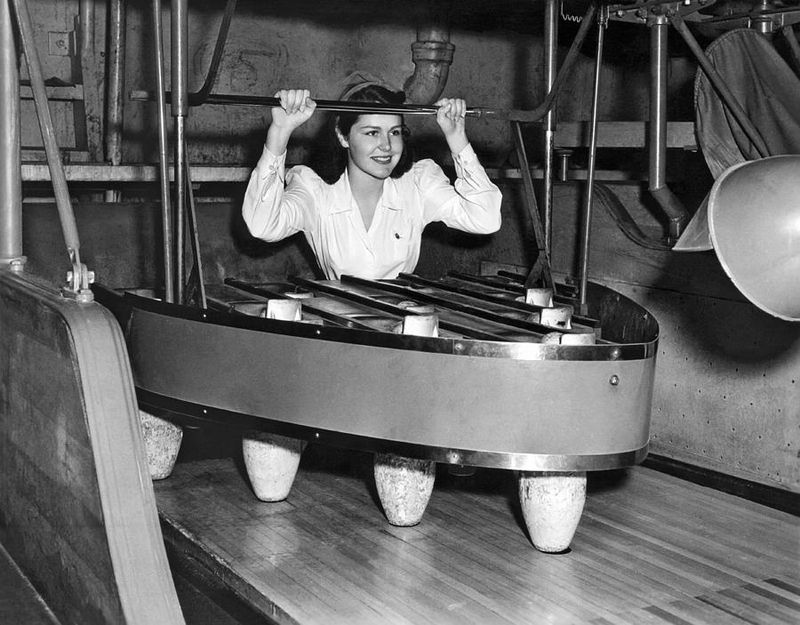
Bowling alleys once had humans behind the scenes resetting pins. These pinsetters were quick on their feet, dodging rogue bowling balls with a skill that deserves applause.
Automation took over, phasing out their work. Machines now handle the chaos without the fear of a stray strike.
They thrived on adrenaline and precision, each frame a small victory against the relentless crashing pins.
5. Lector in Factories
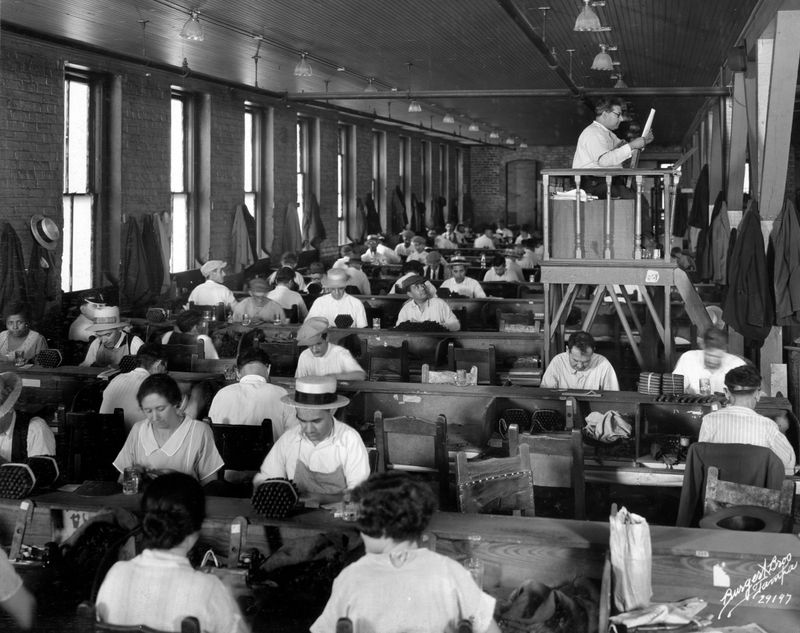
Before Spotify and podcasts, lectors were the entertainment lifeline in factories. Reading news, literature, or anything of interest aloud, they turned monotonous work into an auditory adventure.
With the advent of radio and recorded media, the need for live reading in factories faded away. They left behind an echo of cultural enrichment during work hours.
For workers, it was a daily escape, a mental journey beyond the factory walls, brought alive by the lector’s voice.
6. Elevator Operator
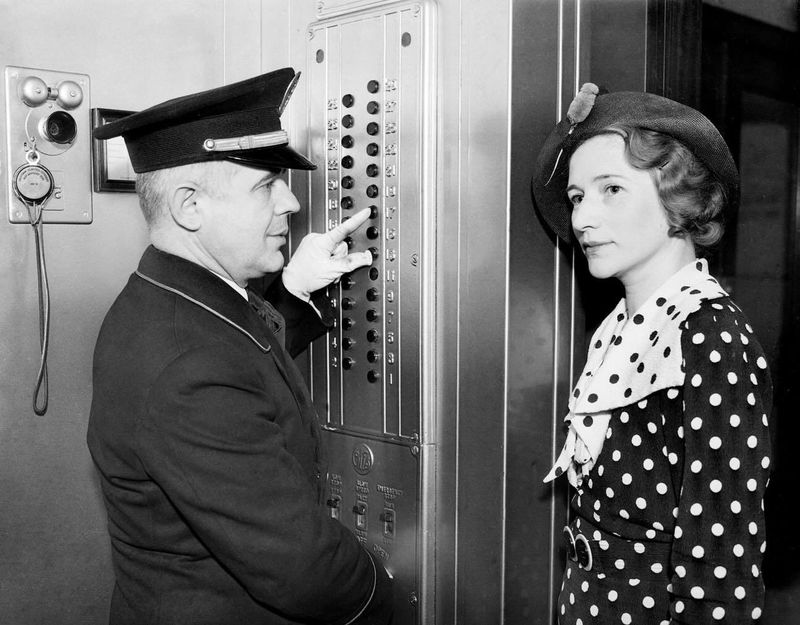
Elevators once had operators who were part concierge, part mechanic. With a uniform and a smile, they literally elevated experiences.
Self-service systems ended their careers, freeing up elevators for direct engagement with advancements.
To riders, they offered a brief yet personable interaction, a human touch on an otherwise mechanical journey upwards or down.
7. Lamplighter
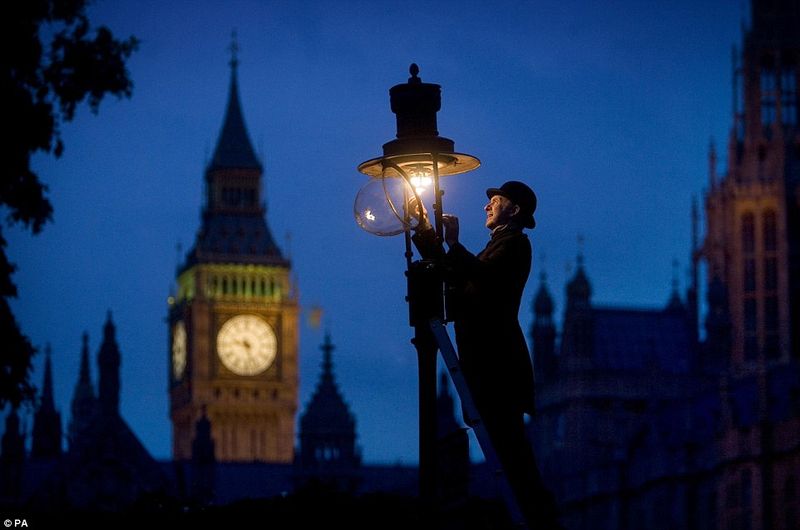
As dusk settled, lamplighters roamed the streets, bringing light to the dark corners of the city. Armed with a long pole, they managed the city’s glow.
Electricity flicked the switch on their profession, turning streetlamps into glowing sentinels that needed no human hand.
For those who watched, it was a nightly ritual, a dance with shadows that marked the passage of time and the onset of evening magic.
8. Human Alarm Clock
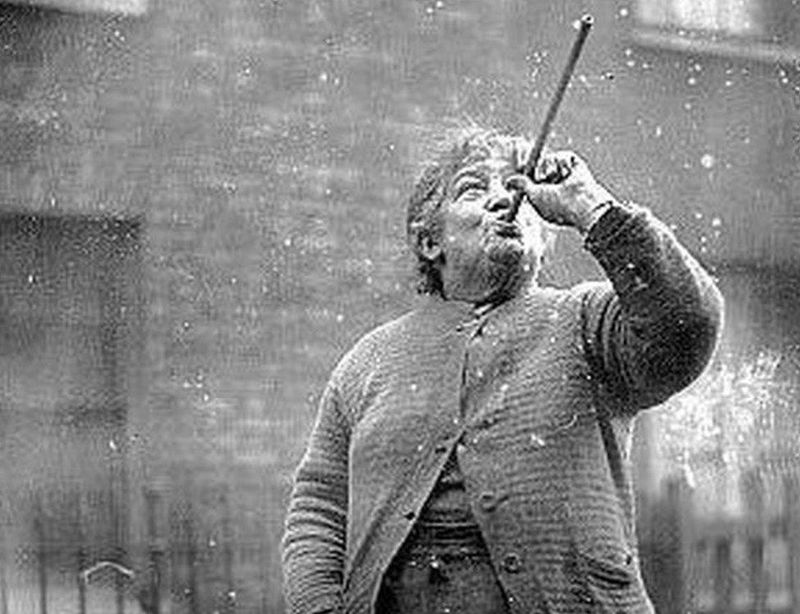
Before iPhones buzzed us awake, there were human alarm clocks, or ‘knocker-uppers.’ They tapped on windows at ungodly hours, ensuring you weren’t late for the factory grind.
The invention of affordable alarm clocks silenced their knocking, leaving a legacy of punctuality in their wake.
It was a personal service, a gentle nudge from slumber at a time before digital precision ruled our schedules.
9. Ice Cutter
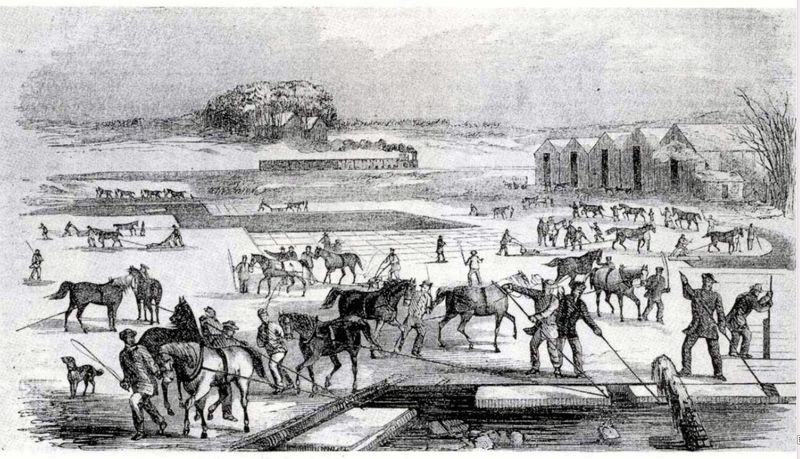
Long before freezers, ice cutters braved the elements to harvest ice from lakes, ensuring summer treats weren’t just a dream.
Refrigeration advancements turned this frosty profession into a historical footnote, melting away with technological progress.
For those who wielded saws on ice, it was a testament to human endurance and the chill of innovation in the pre-electric era.
10. Switchboard Typist
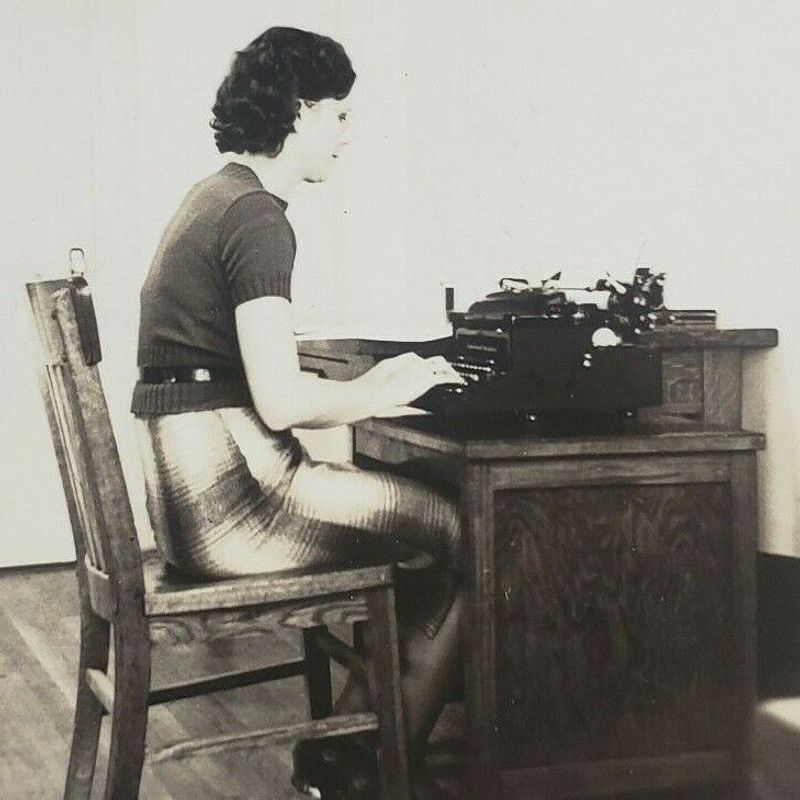
Master of the clattering keys, the switchboard typist translated spoken word into written form with unmatched speed and accuracy.
Dictaphones and digital recorders have since typed out the end of this fast-fingered profession, leaving the office a quieter place.
For those who typed, it was a symphony of clicks and clacks, a melody of productivity in the era before keyboards went silent.
11. Typist Pool
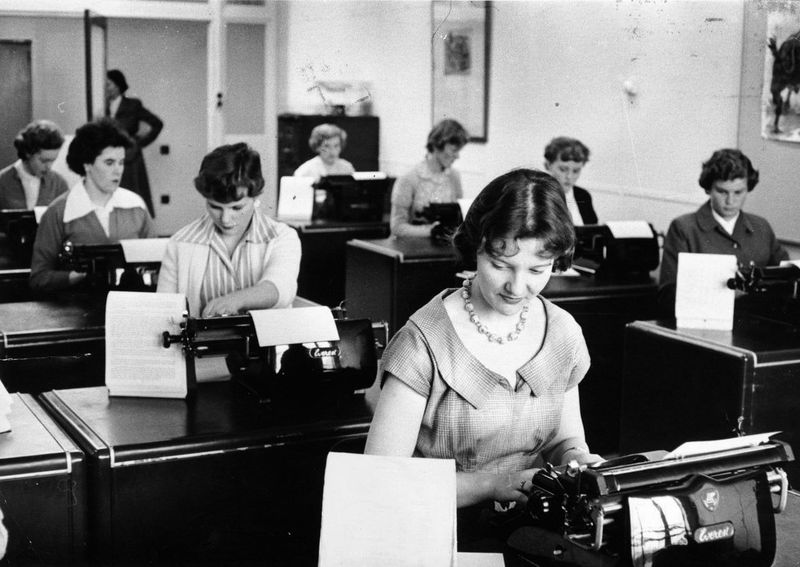
In the bustling office of yesteryear, the typist pool was a sea of clattering typewriters and focused faces. They transformed handwritten notes into polished documents.
Computer processors and word processing software streamlined this task, sinking the typist pool into history.
For the people who typed, it was a daily race against the clock, a test of dexterity and endurance under the watchful eye of the office manager.
12. Projectionist
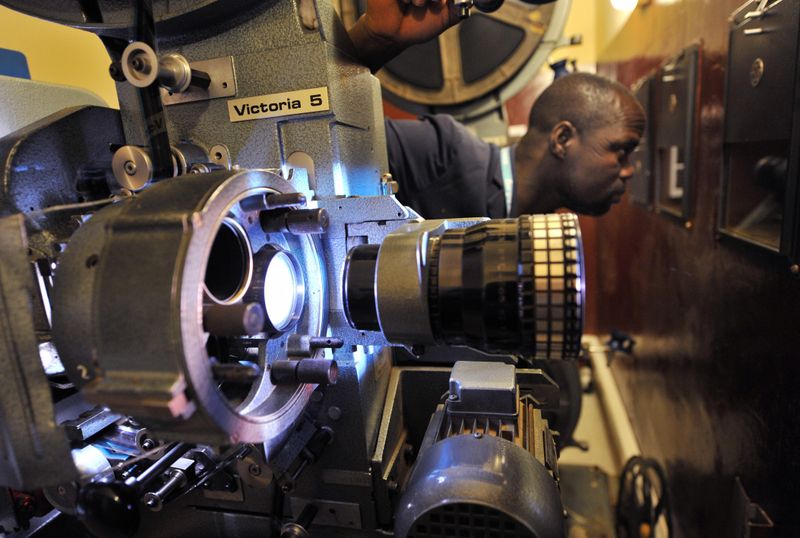
Behind every flickering film, a projectionist wove magic through reels of celluloid. With precision, they brought stories to life on the big screen.
Digital projectors replaced them, pushing their craft into cinematic history’s credits.
They lived in a world of whirring spools and light beams, a hidden skill that made movie magic possible.
13. Typographic Typesetter
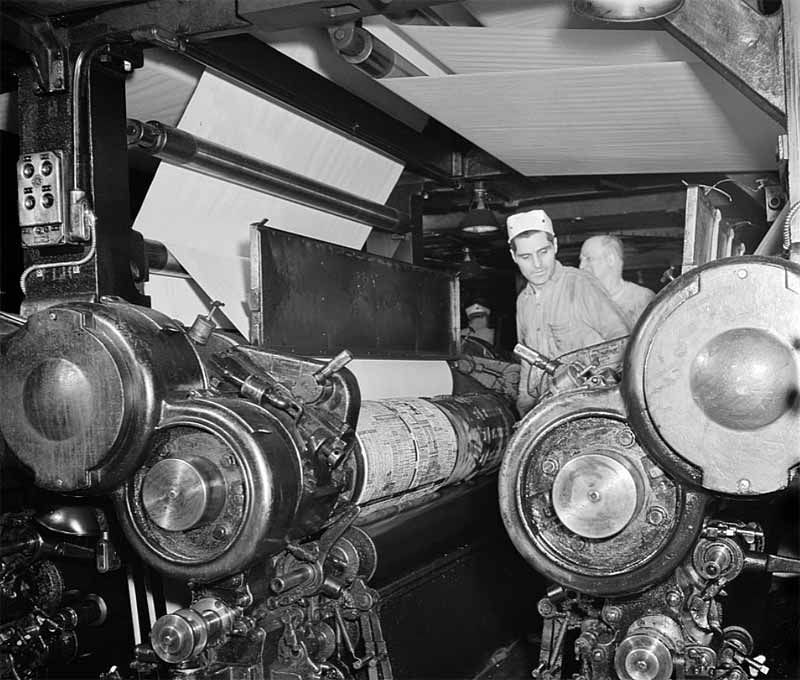
Typesetters meticulously arranged letters to print newspapers and books, crafting words into tangible stories.
Phototypesetting and digital printing pressed the end key on this precise art form, relegating it to history books.
For those who set type, it was a labor of love, a tactile dance with ink and paper that defined the printed word in its golden age.
